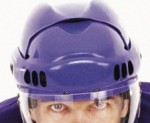The rash of suspensions handed down during the preseason and opening weeks of the season brought to mind an idea I’ve been pondering for refining the NHL’s suspension rules, specifically, tweaking the rules to give some consideration to the team incurring a loss due to the infraction underlying the suspension.
Suppose the Canucks are playing the Blues in the first round of the playoffs, and David Backes gives Ryan Kesler a head shot resulting in a mild concussion that keeps Kesler out of the lineup for a couple of games. Backes would probably get a two-game suspension, meaning the Canucks’ loss of Kesler is matched by Blues’ being without Backes’ service for the same length of time. In a case such as this, the aggrieved team gets some justice.
However, suppose the offending hit happens during the regular season. Now, the chances of there being an equitable outcome goes down considerably, as the Blues’ loss of Backes would be of no direct benefit to the Canucks. . .and, in fact, could actually end up hurting the Canucks even further. Consider the following (albeit, unlikely) scenario. The hit occurs right near the end of the regular season, with the Canucks battling Anaheim for the final playoff berth in the Western Conference. Further, the Blues’ final four games of the season are as follows:
Anaheim at St. Louis
St. Louis at Anaheim
St. Louis at Vancouver
Vancouver at St. Louis
With this scenario, Backes’ suspension takes him out of the Blues’ two games against Anaheim, giving the Ducks a better chance of winning these games. . .and thus, beating out Vancouver for eighth place in the West. And his return for the two games against the Canucks makes the Blues tougher to beat in Vancouver’s attempt to overtake the Ducks.
Given that the Canucks have lost Kesler, it is adding insult to injury to have their rivals for the last playoff berth benefit from the suspension to Backes; it would be much fairer if Backes played the two games against Anaheim, and was kept out of the two games against the Canucks. Of course, he current NHL rules do not allow for this kind of justice. . .but a simple tweak could open the door to justice being done.
The problem here stems from the fact that there is no flexibility in when a suspension begins; it is always “the game following the offending act.” Would it be so hard to change this to give the aggrieved team a say in when the suspension is to be served? So, in the scenario set out above, Vancouver could decide that Backes not start his suspension right away, but rather, sit out the last two games of the season–the games against the Canucks–thus compensating Vancouver’s loss of Kesler with the benefit of playing a weakened Blues team, and also, the benefit of having St. Louis at their best against Anaheim, as the Canucks battle the Ducks for that last playoff berth.
The NHL’s suspension system is currently a mess, and this proposal does not purport to solve all of its woes. However, I would suggest it constitutes a good first step in revamping a system in dire need of change.



